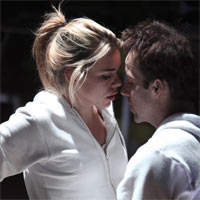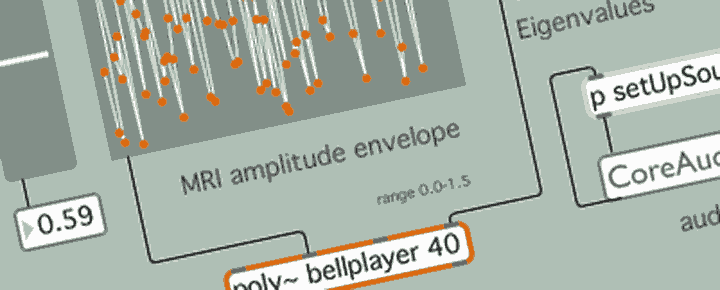The Effect
The National Theatre (Cottesloe)

Billlie Piper and Jonjo O’Neill in ‘The Effect’ (photo Ellie Kurtz)
Composition for the first performance of The Effect – a love story set on a clinical drugs trial, possibly under the influence of mood altering drugs. Written by Lucy Prebble, this play explores sanity, neuroscience and the limits of medicine. A co-production between the National Theatre and Headlong, directed by Rupert Goold.
I created a terse, electroacoustic theatre sscore, reflecting the love affair and the arid, clinical environment in which it was set. The music was composed almost entirely from sounding objects found in a clinic – pill bottles, MRI scanners, metal vessels, tubular chairs and so on. This created something musical that also blended seamlessly with the action. In many instances, you couldn’t tell where naturalistic sound design ended (background clinic noises and other sound design was created by Chris Shutt) and my music began.
My source material for The Effect included sonifications of EEG data provided by Dr Leun Otten and recordings from the inside of an MRI scanner. The MRI sounds were captured at University College London, on a fascinating trip to the lab of Professor Sophie Scott and colleagues.
